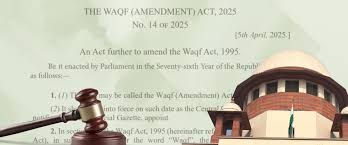In 2025, India’s Parliament enacted several significant laws across various sectors, reflecting the government’s commitment to modernization, transparency, and inclusivity. Below is an overview of the key legislative developments:
⚖️ 1. New Criminal Laws
India replaced its colonial-era criminal laws with three new legislations:reuters.com
- Bharatiya Nyaya Sanhita (BNS), 2023: Replaces the Indian Penal Code, 1860. It introduces new offences like organized crime, terrorism, and cybercrime, while removing sedition as an offence. legal.economictimes.indiatimes.com+2en.wikipedia.org+2kpmg.com+2
- Bharatiya Nagarik Suraksha Sanhita (BNSS), 2023: Supersedes the Code of Criminal Procedure, 1973. It allows for online reporting of incidents, filing FIRs at any police station, and mandates timely investigations for offences against women and children. newsonair.gov.in
- Bharatiya Sakshya Adhiniyam (BSA), 2023: Replaces the Indian Evidence Act, 1872. It emphasizes the use of digital and electronic evidence in trials. kpmg.com
🕌 2. Waqf (Amendment) Act, 2025
This amendment overhauled the management of Muslim endowments (waqfs):en.wikipedia.org+6reuters.com+6youtube.com+6
- Governance Changes: Introduces non-Muslim members into Waqf Boards and mandates representation of at least two Muslim women on the Central Waqf Council. apnews.com+3en.wikipedia.org+3reuters.com+3
- Increased Government Oversight: Empowers the government to validate ownership of disputed waqf properties, raising concerns about potential misuse and undermining religious autonomy. aljazeera.com+5reuters.com+5en.wikipedia.org+5
🧾 3. Immigration and Foreigners Bill, 2025
This bill modernizes India’s immigration laws:prsindia.org
- Visa and Passport Requirements: Mandates that individuals entering or departing from India must possess a valid visa and passport. prsindia.org
- Establishment of Bureau of Immigration: Creates a centralized authority to oversee immigration functions and enforce regulations.prsindia.org+1timesofindia.indiatimes.com+1
📚 4. Public Examinations (Prevention of Unfair Means) Act, 2024
This act addresses malpractices in public examinations:en.wikipedia.org
- Definition of Unfair Means: Broadly defines offences such as leaking question papers, impersonation, and tampering with documents. en.wikipedia.org
- Penalties: Imposes imprisonment ranging from 3 to 10 years and fines up to ₹1 crore for individuals involved in cheating.en.wikipedia.org
- Institutional Accountability: Service providers found guilty can face bans and financial penalties.en.wikipedia.org
🏦 5. Banking Laws (Amendment) Bill, 2025
This amendment aims to strengthen the banking sector:
- Governance Improvements: Enhances reporting standards and audit quality in public sector banks. pib.gov.in
- Depositor Protection: Introduces measures to better protect depositors and investors.pib.gov.in
💰 6. Income Tax Bill, 2025
The revamped tax legislation introduces:en.wikipedia.org
- Digital Surveillance: Grants tax authorities broad powers to access taxpayers’ emails, trading, and social media accounts during searches. reuters.com
- Simplification: Aims to streamline the tax regime and reduce compliance burdens.en.wikipedia.org
These legislative changes signify India’s ongoing efforts to modernize its legal and administrative frameworks. While they aim to enhance efficiency and inclusivity, they have also sparked debates regarding their implications on privacy, religious autonomy, and governance.
For a detailed discussion on the Waqf (Amendment) Act, 2025, you may find the following video informative:
Sources
































































